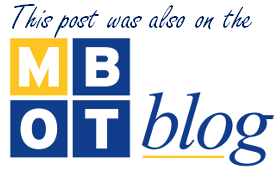Each month a member of the One Red Bird team contributes a blog post to the Mississauga Board of Trade's blog. The MBOT blog publishes posts from a variety of members, and we are honoured that they asked us to contribute. We want to make sure that our regular blog readers also get to see these posts, and so we will post each one here as well.
Enjoy!
 What’s the rest of 2015 going to look like for B2B marketing? What’s working and what isn’t? What are the trends you need to pay attention to? I don’t claim to have a crystal ball, but I can confidently tell them that these five trends are going to continue through 2015 and beyond.
What’s the rest of 2015 going to look like for B2B marketing? What’s working and what isn’t? What are the trends you need to pay attention to? I don’t claim to have a crystal ball, but I can confidently tell them that these five trends are going to continue through 2015 and beyond.
1. Businesses will increase their use of—and investment in-- content marketing.
When done right, content marketing really works. Businesses that are doing it right will keep doing it—and likely escalate their investment— because it’s given them positive ROI.
What is doing it right? It’s creating high-quality content that’s targeted toward the interests of the people you’re trying to sell to. It’s seeking new, creative way to engage, qualify, and convert prospects online.
Great content is needed to stand out amid the noise. These days, that involves rich media experiences (combinations of text, visual, and interactive web elements published online) that consumers have come to expect on their tablets and smartphones.
2. Marketing Automation will continue to improve B2B digital experiences.
Despite the multitude of tools being used to collect data about prospects, many users are still force fed generic digital experiences that treat everyone the same.
Marketing automation software provides a solution by combining traditional marketing activities such as CRM, email marketing, content management, search engine optimization (SEO), lead scoring, and analytics to improve user engagement by delivering relevant, timely, and responsive messages to prospects.
According to research from The Aberdeen Group, using marketing automation (and the subsequent personalized digital experiences it can help deliver) can increase conversion rates by over 50 percent.
3. The ecosystems around marketing platforms will flourish, diversify, and grow.
In 2014, many marketing software providers—Adobe, Hubspot, Marketo, Oracle, Salesforce.com — embraced and promoted their agency and independent software vendor (ISV) communities. This seems to support the thinking that simply buying the platform isn’t enough—you need to integrate, develop strategy, and create content to see real results.
As this marketing ecosystem develops, marketing users will increasingly be able to find the right capabilities from a growing group of specialized agencies and vendors.
4. Marketing data will continue to become more detailed even as it becomes easier to obtain.
This is the year for many companies to become data-driven marketers—as there are now so many tools available to help them digest and use their data. As companies use of embrace marketing technology platforms such as Marketo and Hubspot, they will have the data to understand their customers, their prospects, and every interaction they have with them.
More organizations are realizing that using supporting technology to provide and track content—for the purpose of understanding prospects and customers— creates data that help marketing deliver compelling business results.
5. “Marketing technologists” will multiply.
Whatever you want to call them - the number of technical professionals working in the service of marketing is clearly on the rise. I’m hearing the term “marketing technologist” used more frequently, and I expect it will gain more traction in the year ahead.
Where will these previously nonexistent marketing technologists come from? Some will migrate from IT; others will be marketers with a feel for code and tech; others will simply be new marketers who can’t imagine a world where technology isn’t as important as design.
The Bottom Line
B2B marketing is undergoing an exciting time in 2015, as more tools and platforms than ever are available to help marketers drive sales. Businesses have ample opportunity to take advantage of emerging technologies and content marketing strategies to help them create more leads and achieve higher conversion rates.

Image courtesy of Charles Wagner, Creative Commons.


